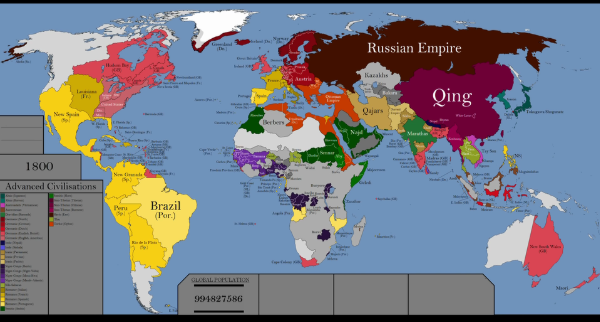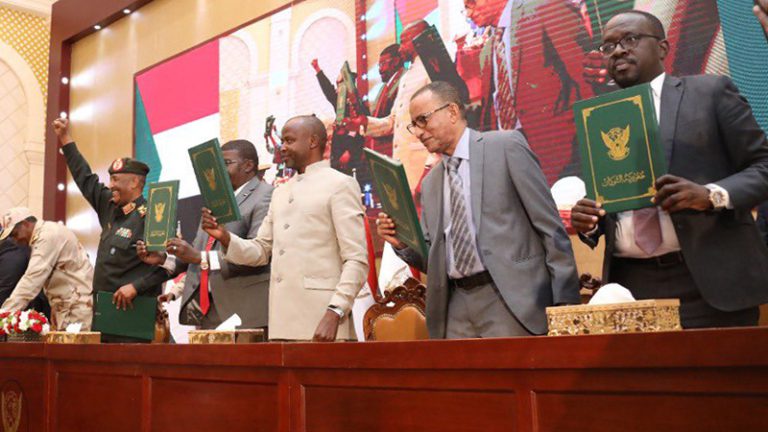Political Processes: Understanding the Shifts in Political Boundaries and Power Dynamics
Introduction to Political Processes
The concept of political processes encompasses the dynamic factors that influence the formation, alteration, and evolution of political boundaries and systems. Over centuries, these processes have reshaped the global map, leading to the creation of new countries, the dissolution of empires, and significant shifts in power structures. Understanding these political processes sheds light on the mechanisms that drive international relations, nationalism, colonialism, and decolonization.
The Evolution of Political Maps
Political maps have undergone dramatic transformations due to wars, treaties, colonial expansion, and the rise of nationalism. From the fragmented territories of the 1800s to the relatively stabilized borders of today, political processes have consistently played a pivotal role.
Factors Driving Changes in Political Maps
Wars and Treaties: Conflicts such as World Wars I and II led to significant redrawing of boundaries.
Formation of New Nations: Post-colonial independence movements and the dissolution of empires resulted in new nations.
Name and Border Changes: Countries like Burma (Myanmar) and Ceylon (Sri Lanka) altered their names to reflect their unique identities.
These changes highlight how political processes are central to the shifting nature of global territories.

Nationalism: The Catalyst of Political Transformation
Nationalism emerged during the Enlightenment period, emphasizing the collective identity of a people or nation. It advocated for self-determination, often serving as the foundation for the creation of nation-states.
Positive and Negative Impacts of Nationalism
Positive: Inspired independence movements, fostering unity and cultural pride.
Negative: Excessive nationalism has fueled conflicts and wars, particularly in the 19th and 20th centuries.
Imperialism and Colonialism: A Tale of Expansion and Exploitation
Defining Imperialism and Colonialism
Imperialism: The extension of a country’s influence over others through military, economic, or cultural dominance.
Colonialism: The establishment of colonies to exploit resources and exert control.
Key Motivations Behind Imperialism
Materials: Access to natural resources.
Markets: Creation of new markets for goods.
Historical Context
The Age of Exploration: Spain and Portugal pioneered colonial expansion in the 1500s.
European Colonization: The Berlin Conference of the late 1800s divided Africa among European powers without regard for indigenous cultures or boundaries.
Global Impact: Colonization reshaped societies, economies, and political structures worldwide.
World Wars and Their Role in Political Processes
World War I: The Redrawing of Boundaries
World War I (1914-1918) not only devastated Europe but also led to the reconfiguration of political landscapes. Empires such as the Ottoman and Austro-Hungarian were dismantled, giving rise to new nations. Nationalism surged as countries like Ireland and the Baltic states sought independence.
World War II: A Global Transformation
World War II (1939-1945) saw the rapid expansion and subsequent collapse of Nazi Germany and Imperial Japan. Post-war, Eastern Europe fell under Soviet influence, and the geopolitical landscape of Asia was restructured.
The Cold War: A New Era of Political Processes
The Cold War (1945-1991) marked a period of ideological and geopolitical rivalry between the United States and the Soviet Union. Proxy wars in Korea, Vietnam, and Afghanistan exemplified the global reach of this competition.
Key Impacts of the Cold War
Economic Imperialism: The US’s influence in Latin America.
Decolonization: Accelerated by weakened European powers post-World War II.
Decolonization: The Rise of Sovereign Nations
Decolonization refers to the process by which colonies gained independence, often through prolonged struggle. This movement reshaped global politics, especially in Asia, Africa, and the Middle East.
Significant Examples
India and Pakistan (1947): Partition created two nations, sparking conflicts that persist today.
Algeria and Vietnam: Both fought colonial powers and achieved independence through armed struggle.
Israel (1948): Established as a homeland for Jews but immediately faced regional hostility.
Post-Cold War Political Processes
The collapse of the Soviet Union in 1991 marked the end of the Cold War, resulting in the emergence of 15 independent nations. The peaceful transition highlighted the weakened state of the USSR after its costly war in Afghanistan.
Continuing Trends
Rise of Nationalism: Still a driving force in contemporary politics.
Imperialistic Tendencies: Manifest in modern economic policies and strategic alliances.
Forces That Unify and Divide Nations
Centripetal Forces
These are forces that unify a nation, such as:
Shared Language and Culture: Promotes national identity.
Economic Integration: Strengthens internal cohesion.
Centrifugal Forces
These are forces that divide a nation, such as:
Ethnic and Religious Differences: Lead to internal conflicts.
Economic Inequality: Creates regional disparities and tension.
Modern Examples of Political Processes
European Union: An example of economic and political integration that transcends national boundaries.
Brexit: Illustrates the centrifugal forces of nationalism and economic disagreement.
Middle Eastern Conflicts: Reflect the enduring impact of colonial-era boundaries and cultural divisions.
Conclusion: The Ever-Changing Map of Political Processes
Political processes have shaped and reshaped the global landscape for centuries, driven by forces of nationalism, imperialism, war, and decolonization. As history demonstrates, these processes are dynamic, influenced by the interplay of unifying and divisive forces. By understanding the mechanisms behind these transformations, we gain insight into the complexities of international relations and the enduring quest for sovereignty and identity.
The political map continues to evolve, shaped by the aspirations of nations and the realities of global power dynamics. As we move further into the 21st century, the legacy of political processes will undoubtedly influence the creation of new boundaries and the redefinition of old ones.
Highly Trending FAQs About Political Processes with Detailed Answers
1. What Are Political Processes?
Political processes encompass the activities, actions, and policies used to govern a nation or state. These include decision-making, lawmaking, and administration by elected representatives and institutions.
2. What Are the Key Components of Political Processes?
Elections: Choosing representatives through voting.
Legislation: Creating and passing laws.
Policy Making: Formulating public policies.
Governance: Administering public services and enforcing laws.
Participation: Citizens engaging in political activities.
3. What is the Role of Elections in Political Processes?
Elections are fundamental in selecting leaders, ensuring accountability, and allowing citizens to express their preferences.
4. How Does Policy Making Work?
Policy making involves:
Identifying issues.
Drafting proposals.
Reviewing and debating policies.
Implementing approved policies.
Evaluating outcomes.
5. What Are Political Institutions?
Political institutions are organizations that structure political action, such as legislatures, executives, courts, and bureaucracies.
6. What is the Role of Political Parties in Political Processes?
Political parties organize individuals with similar ideologies to contest elections, shape policies, and form governments.
7. What Are the Types of Political Systems?
Democracy: Power lies with the people.
Autocracy: Power concentrated in one leader.
Oligarchy: Power held by a small group.
Theocracy: Governance based on religious principles.
8. What is the Separation of Powers in Politics?
The separation of powers divides government responsibilities into three branches:
Legislative: Makes laws.
Executive: Implements laws.
Judiciary: Interprets laws.
9. What is the Role of Public Opinion in Political Processes?
Public opinion influences decision-making, policy formulation, and electoral outcomes. It is often gauged through surveys and polls.
10. What is the Importance of Political Participation?
Political participation ensures that citizens have a voice in governance, promoting accountability and inclusivity.
11. How Do Political Campaigns Work?
Political campaigns promote candidates or parties by communicating policies, engaging voters, and raising funds.
12. What is Lobbying in Politics?
Lobbying involves influencing legislators or officials to support specific policies or legislation.
13. What Are Political Ideologies?
Political ideologies are sets of beliefs about governance and policies, such as liberalism, conservatism, socialism, and communism.
14. What is the Role of the Media in Political Processes?
The media informs citizens, shapes public opinion, and holds leaders accountable through investigative reporting and analysis.
15. What is Gerrymandering?
Gerrymandering manipulates electoral district boundaries to favor a particular political party or group.
16. What is Political Polarization?
Political polarization refers to the division of society into opposing ideological groups, leading to reduced compromise.
17. What is the Role of Civil Society in Political Processes?
Civil society organizations advocate for social issues, influence policy, and hold governments accountable.
18. How Do Referendums Work?
Referendums allow citizens to vote directly on specific issues, such as constitutional changes or policy decisions.
19. What Are Checks and Balances?
Checks and balances ensure that no branch of government becomes too powerful by allowing each branch to oversee and limit the others.
20. What is the Legislative Process?
The legislative process involves drafting, debating, and enacting laws through elected representatives or legislative bodies.
21. How Do Political Movements Influence Change?
Political movements mobilize individuals to demand policy reforms, social justice, or political change through protests, campaigns, and advocacy.
22. What is the Role of Constitutions in Political Processes?
Constitutions define the structure, powers, and limits of government, ensuring the rule of law and protecting citizens’ rights.
23. What Are International Political Processes?
International political processes involve diplomacy, treaties, and global organizations like the United Nations to address cross-border issues.
24. What is the Role of Political Leadership?
Political leadership provides vision, direction, and decision-making to implement policies and manage governance effectively.
25. What is Political Accountability?
Political accountability holds leaders responsible for their actions through mechanisms like elections, transparency, and legal systems.
26. How Does the Judiciary Influence Political Processes?
The judiciary ensures laws comply with the constitution, resolves disputes, and protects individual rights.
27. What is the Role of Bureaucracy in Politics?
Bureaucracy implements policies, administers public services, and ensures the day-to-day functioning of government.
28. What is the Difference Between Politics and Governance?
Politics: Focuses on power dynamics, decision-making, and elections.
Governance: Involves policy implementation and management of public resources.
29. What is the Role of Youth in Political Processes?
Youth contribute fresh perspectives, advocate for social change, and increase voter turnout through activism and participation.
30. How Do Protests Influence Political Processes?
Protests draw attention to issues, pressure governments, and mobilize public support for change.
31. What is Political Corruption?
Political corruption involves the abuse of power for personal gain, such as bribery, nepotism, and embezzlement.
32. How Does Globalization Affect Political Processes?
Globalization influences policies on trade, migration, and climate change, fostering international collaboration and competition.
33. What is Populism in Politics?
Populism emphasizes the interests of ordinary people against elites, often characterized by charismatic leadership.
34. What is the Impact of Social Media on Political Processes?
Social media amplifies political messages, mobilizes voters, and provides a platform for activism but can spread misinformation.
35. What Are the Stages of Political Development?
Traditional systems.
Transitional democracies.
Established democracies.
36. What is the Role of Think Tanks in Political Processes?
Think tanks research and propose policy solutions, influencing decision-making and public debates.
37. How Do Political Scandals Affect Trust?
Scandals erode public trust in leaders and institutions, leading to demands for accountability and reform.
38. What is Political Socialization?
Political socialization is the process through which individuals develop political beliefs, often influenced by family, education, and media.
39. What Are Non-Governmental Organizations (NGOs) in Politics?
NGOs advocate for social, environmental, and political issues, often partnering with governments or acting as watchdogs.
40. What Are Political Alliances?
Political alliances are coalitions formed between parties or nations to achieve common goals, such as winning elections or addressing global issues.







